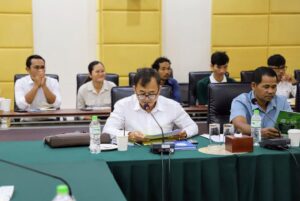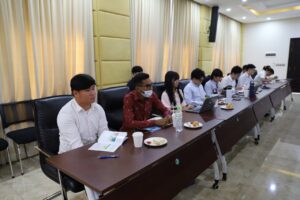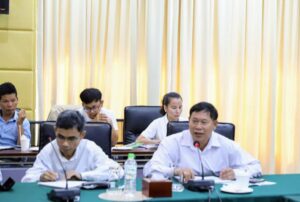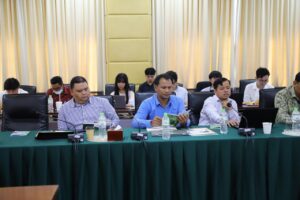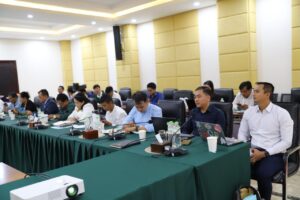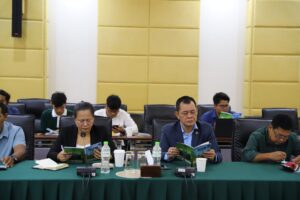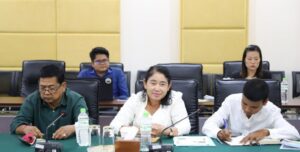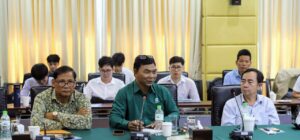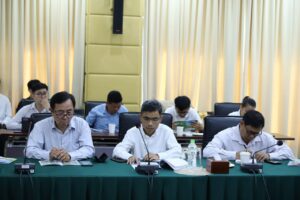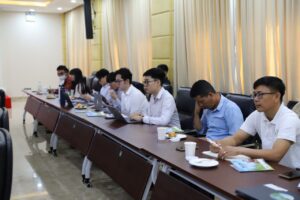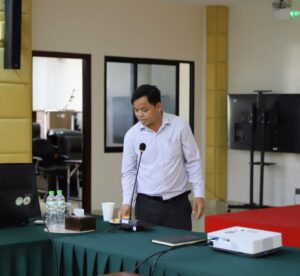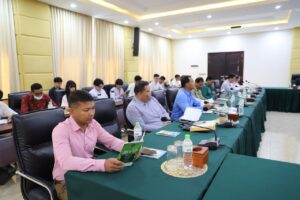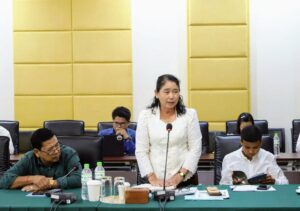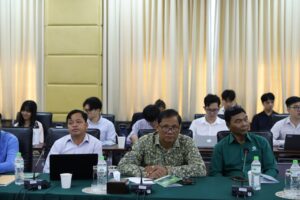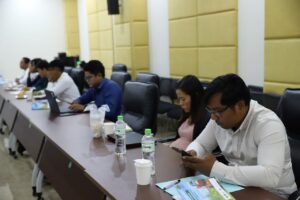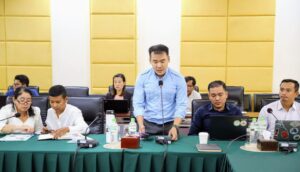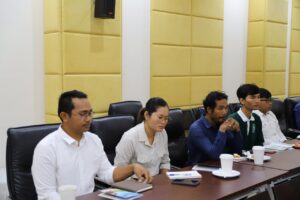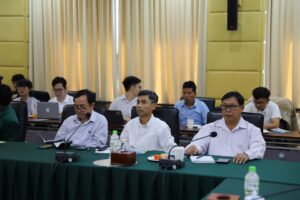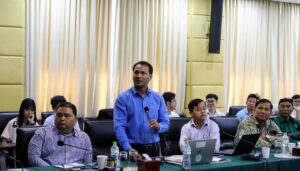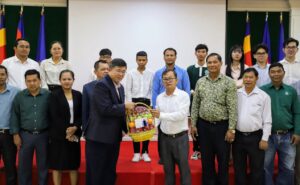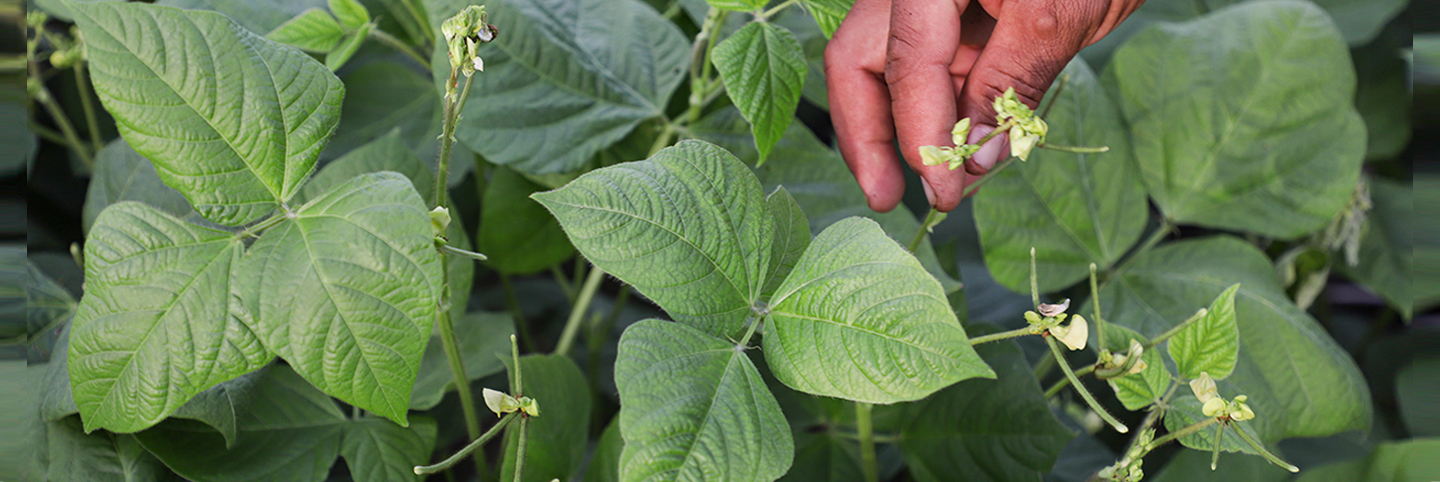MetKasekor Steering Committee Meets to Chart Future of Conservation Agriculture in Cambodia
Community |
Phnom Penh, December 19, 2024 – The MetKasekor Steering Committee convened for its 2024 meeting to evaluate progress, address challenges, and plan the expansion of Cambodia’s flagship agriculture extension model. Organized by the Department of Extension for Agriculture, Forestry, and Fisheries (DEAFF), the meeting brought together government officials, development partners, and technical working groups at […]
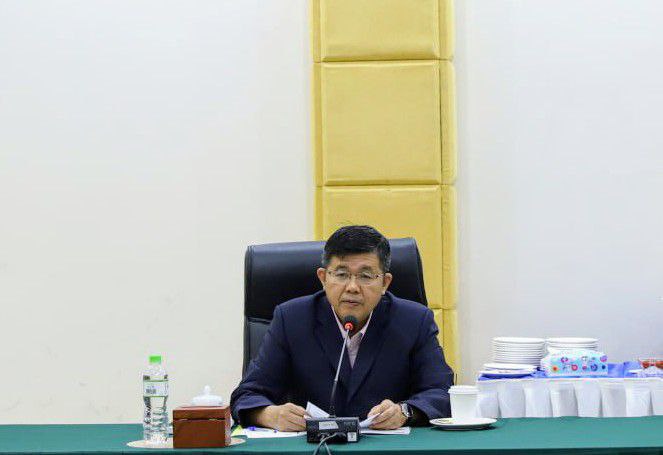
Phnom Penh, December 19, 2024 – The MetKasekor Steering Committee convened for its 2024 meeting to evaluate progress, address challenges, and plan the expansion of Cambodia’s flagship agriculture extension model. Organized by the Department of Extension for Agriculture, Forestry, and Fisheries (DEAFF), the meeting brought together government officials, development partners, and technical working groups at the Ministry of Agriculture, Forestry, and Fisheries (MAFF).
Since its inception in 2021, MetKasekor has been implemented in Battambang and Preah Vihear provinces, reaching over 5,900 smallholder farmers across four districts as of September 2024. Of these, more than 870 farmers now practice conservation agriculture on over 3500 hectares of farmland, and its success has fueled aspirations to expand to other provinces with significant agricultural potential. The initiative promotes sustainable farming practices to improve soil quality, enhance productivity, and increase income.
MetKasekor has been supported by CIRAD, CE SAIN, Swisscontact, and Kansas State University, with technical backing from CARDEC under the Department of Agricultural Land Resources Management (DALRM). The Provincial Departments of Agriculture in Battambang and Preah Vihear have endorsed the model, highlighting its role in transitioning farmers towards agroecology.
The key objectives of the steering committee meeting were to review the progress of activities implemented from January to September 2024, plan the remaining activities, address challenges faced during field activities, and discuss financial support for the initiative in existing and new target provinces for 2025.
“MetKasekor remains a fundamental foundation for promoting agroecology among smallholder farmers. While the first three pillars—participation, engagement, and diffusion—have been successfully achieved, the fourth pillar, ownership and sustainability, still requires further effort and focus. MetKasekor plays a critical role in ensuring food safety and addressing food insecurity, underscoring the need to strengthen its impact and sustainability for long-term benefits.” - H.E. Dr. Chan Saruth, the chairman of the MetKasekor Steering Committee.
The meeting agenda included presentations by Provincial Departments of Agriculture, Forestry, and Fisheries (PDAFF) from Battambang and Preah Vihear, detailing progress, challenges, and next steps for implementing MetKasekor. The Conservation Agriculture Research for Development Center (CARDEC) provided updates on technical training and shared recent discoveries in agroecology research.
The meeting also emphasized the need for synergy between MetKasekor and two other government initiatives, KropouchKasekor (promoting cover crops under the Department of Crop Seeds) and SevaKasekor (promoting agroecology machinery and services under the Department of Agricultural Engineering), to enhance conservation agriculture efforts in Cambodia. As 2024 draws to a close, the implementation of MetKasekor in Battambang and Preah Vihear will be evaluated. PDAFF, acting as the technical working group, is tasked with reporting on challenges and progress to the steering committee, sharing insights, and receiving feedback for the coming years. Looking forward, the committee discussed financial support mechanisms to sustain ongoing activities and expand to additional provinces in 2025.
Dr. Mao Minea, the director of DEAFF and chairman of the MetKasekor Technical Working Group also acknowledged the significant benefits of practicing Conservation Agriculture (CA), highlighting the growing number of early adopters and the positive results achieved through the collective efforts of PDAFF and CARDEC. He emphasized the importance of continuing innovative work on CA and strengthening extension services to ensure its widespread adoption. Dr. Minea also stressed the need for a robust exit strategy, urging PDAFF in both provinces to sustain the implementation of MetKasekor (MK) in the coming years, not only in collaboration with Swisscontact but also by engaging other development partners. To ensure the continued implementation of MK, he called for an assessment of PDAFF's specific needs, including capacity building, resource allocation, and strategic partnerships, to support and expand agroecology practices effectively.
The meeting was attended by 4 participants representing a wide range of stakeholders, including government agencies such as the Ministry of Agriculture, Forestry and Fisheries (MAFF), Department of Extension for Agriculture, Forestry and Fisheries (DEAFF), Department of Agricultural Land Resources Management (DALRM), Department of Agricultural Engineering (DAEng), Department of Crop Seeds (DCS), PDAFF-Battambang, and PDAFF-Preah Vihear. Research institutions, NGOs, and private sector representatives, including Center of Excellence on Sustainable Agricultural Intensification and Nutrition (CE SAIN), Swisscontact, CIRAD, CARDEC, Chamroeun Microfinance PLC, and Angkor Green were also present.
As the current phase of MetKasekor nears completion, the insights and decisions from this meeting will play a pivotal role in shaping its next phase. With continued collaboration among stakeholders, MetKasekor aims to solidify its position as a cornerstone of sustainable agriculture in Cambodia.
